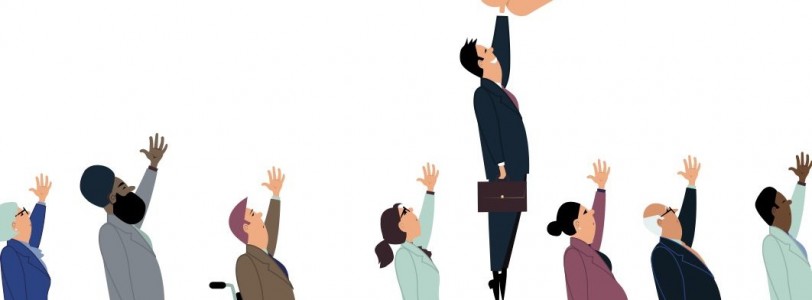Research by the Intensive Care National Audit and Research Centre discovered that people from Black, Asian, and minority ethnic groups (BAME) in the UK are more likely to be badly affected by coronavirus than non-ethnic groups. Their early research unveiled that 35% of their 2,000 patient sample were non-white, nearly three times the 13% proportion in the UK population as a whole. It appears that this crisis is revealing equality gaps in our society which would otherwise remain hidden, shining a light on the much-debated issue of white privilege. Could the pandemic raise awareness for the impact and prevalence of racially-based disadvantages?
It certainly looks promising, as the study triggered calls for further research, in order to understand why the virus is impacting non-white ethnic groups disproportionately. In response, the the government announced a new review into the matter.
Marsha de Cordova, the shadow Women and Equalities Secretary, was interviewed on the topic. She said: “The government must ensure the review is robust and looks into the underlying structural economic and social inequalities that have affected BAME communities in this crisis. It must also urgently record data broken down by ethnicity on the number of people who have died as a result of Covid-19.”
However, this issue is accompanied by data found in a recent poll for ‘The Independent’, which suggests that people from BAME backgrounds are also suffering more from lockdown measures. The data suggests that people from a BAME community are almost twice as likely as white Britons to report having lost income and jobs. This too suggests that the wealth divide in Britain is drawn along racial lines.
The causes for the disproportionately hard impact of Covid-19 and lockdown on BAME communities can be linked to various socio-economic factors. It has even been suggested that delays in translating government guidelines from English to other languages could be partially to blame.
Government figures confirm that cramped housing is far more likely to be a problem for ethnic minorities. For example, 30% of the UK Bangladeshi population are considered to live in overcrowded housing, compared to just 2% among the British white population. 15% of black African people also live in overcrowded conditions, as do 16% of Pakistanis. The Covid pandemic has drawn focus to the gaps between the standard of living amongst Britons from different ethnic origins, bringing attention to how health can be directly impacted by background, despite the universal access that the NHS provides.
In addition, the work typically undertaken by BAME communities could also be a cause of this issue, with people from these groups also making up a disproportionate amount of high risk jobs. NHS staff, for example, are disproportionately drawn from ethnic minorities, while in London more than a quarter of transport workers operating tubes and buses are from black and minority ethnic backgrounds.
Mohamed Ibrahim, a member of the Somali community and Director of the London Somali Youth Forum, told ITV News in an interview that there are also key cultural differences which could be contributing to the disproportionate ethnic minority Covid-19 cases and deaths. Within the Somali community, he said many feel the need to visit loved ones who are ill with virus symptoms, or go to a family or friend's house to pay their respects for someone who has died from Covid-19, as culturally this is what many would do. More than anything this demonstrates how varied cultural attitudes towards health are across the country.
So while the government continues to strive to reduce Covid-19 cases across the UK, indirect discrimination against minority groups does not seem to have diminished during this difficult period. As we continue as a nation to applaud the NHS each Thursday, and to support those we can in our community, we must remain aware that social distancing should not perpetuate social division, and that while diseases don’t discriminate, white privilege can unintentionally.









0 Comments